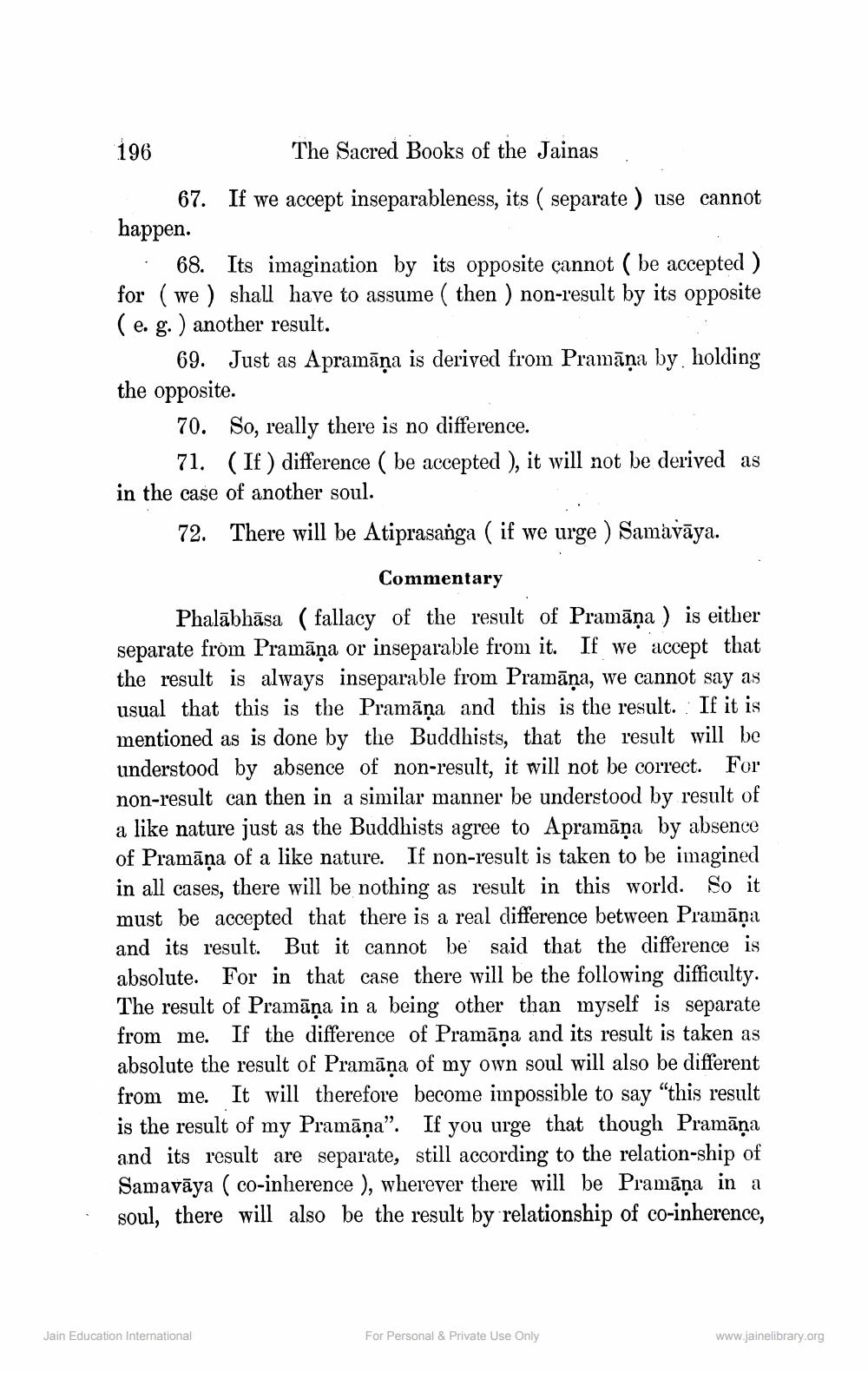________________
196
The Sacred Books of the Jainas 67. If we accept inseparableness, its ( separate ) use cannot happen.
68. Its imagination by its opposite cannot ( be accepted ) for ( we ) shall have to assume ( then ) non-result by its opposite (e. g. ) another result.
69. Just as Apramāņa is derived from Pramāņa by holding the opposite.
70. So, really there is no difference.
71. (If ) difference ( be accepted ), it will not be derived as in the case of another soul.
72. There will be Atiprasanga ( if we urge ) Samavāya.
Commentary
Phalābhāsa ( fallacy of the result of Pramāņa ) is either separate from Pramāņa or inseparable from it. If we accept that the result is always inseparable from Pramāņa, we cannot say as usual that this is the Pramāņa and this is the result. : If it is mentioned as is done by the Buddhists, that the result will be understood by absence of non-result, it will not be correct. For non-result can then in a similar manner be understood by result of a like nature just as the Buddhists agree to Apramāņa by absence of Pramāņa of a like nature. If non-result is taken to be imagined in all cases, there will be nothing as result in this world. So it
nust be accepted that there is a real difference between Pramāņa and its result. But it cannot be said that the difference is absolute. For in that case there will be the following difficulty. The result of Pramāņa in a being other than myself is separate from me. If the difference of Pramāna and its result is taken as absolute the result of Pramāņa of my own soul will also be different from me. It will therefore become impossible to say "this result is the result of my Pramāņa”. If you urge that though Pramāņa and its result are separate, still according to the relation-ship of Samavāya ( co-inherence ), wherever there will be Pramāņa in a soul, there will also be the result by relationship of co-inherence,
Jain Education International
For Personal & Private Use Only
www.jainelibrary.org




